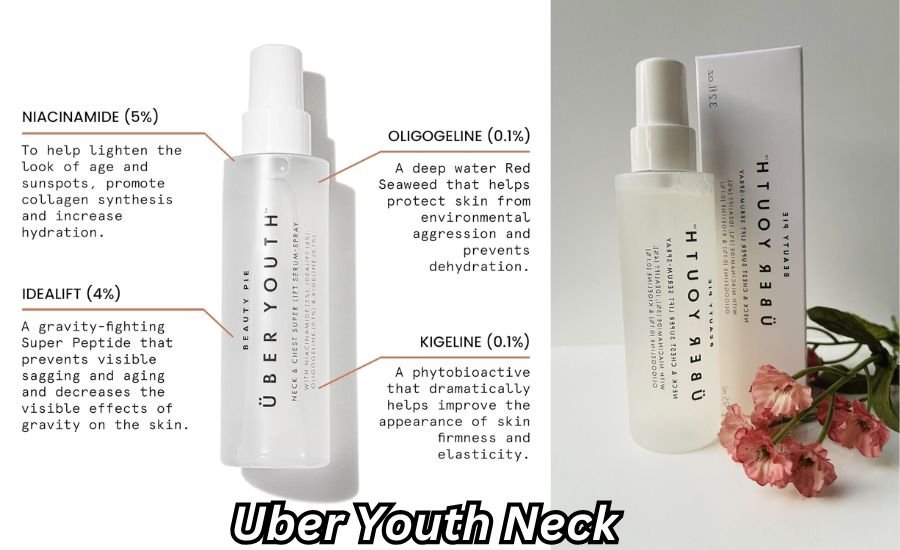When you hear the terms “boujee vs bougie,” you might think they mean the same thing—but there’s more to them than just a similar sound. These slang terms have distinct meanings, histories, and cultural contexts that can easily confuse even the most avid users of pop culture lingo. While both words can be used to describe a luxurious lifestyle, the way they are used and the message they convey can vary significantly. In this post, we at Digital Journel will break down the differences between boujee and bougie, explore their origins, and show you how to use them correctly in your everyday conversations.
The word bougie (pronounced “boo-zhee”) is often used to describe someone who is pretending to be part of a wealthier class than they actually are—think of someone trying too hard to fit in with an elite crowd. On the other hand, boujee (pronounced “boo-jee”) carries a slightly different vibe. It’s used to describe someone who has actually earned their wealth, often through talent or hard work, but still stays true to their roots. This term is particularly popular in Black culture, where it symbolizes self-made success and enjoying a luxurious life without losing touch with one’s past.
The Origins of “Boujee vs Bougie”: A Historical Look at Their Roots
The terms “boujee” and “bougie” both have roots in French. “Bougie” comes from the French word “bourgeois,” which was used to describe the middle class, particularly those who are wealthy or pretend to be. This term made its way into English in the 20th century, often with a critical tone. It was used to describe people who were seen as trying too hard to appear sophisticated or rich.
On the other hand, “boujee” is a modern twist on “bougie,” popularized in the 2000s. The term gained traction in hip-hop and pop culture, particularly through artists like Cardi B and Lil Uzi Vert. “Boujee” is more of a fun, confident term used to describe someone who enjoys their success and flaunts it proudly. While both terms share origins, their uses have evolved differently over time. “Bougie” is more often used to mock, while “boujee” is embraced as a term of self-expression and success, often associated with a luxury lifestyle.
How Boujee vs Bougie Reflects Social Class and Status
When it comes to social class, “bougie” and “boujee” are used to highlight different attitudes toward wealth and status. “Bougie” is commonly used to criticize people who appear to be trying too hard to fit in with a higher social class. It suggests that someone is out of touch with their roots or trying to act more sophisticated than they really are.
In contrast, “boujee” carries a more positive meaning. It reflects a sense of pride in achieving success through hard work and enjoying the rewards of that effort. People who use “boujee” typically embrace their self-made success without trying to be fake. This difference in tone shows how these words reflect attitudes toward wealth and status, with “bougie” often being used in a judgmental way and “boujee” in an empowering one—celebrating the luxury lifestyle that comes with personal achievements.
Bougie: Pretending to Be Wealthy vs Boujee: Embracing Self-Made Success
The difference between “boujee” and “bougie” is in how each reflects wealth and status. “Bougie” refers to pretending to be rich or sophisticated, even when you’re not. It’s about using material goods to impress others and acting as though you belong to a higher class, even if it’s not true. The term often carries a critical tone, implying that the person is trying to cover up their true background.
On the other hand, “boujee” is about celebrating your success in an authentic way. People who describe themselves as “boujee” are proud of their achievements and don’t feel the need to pretend. They’ve worked hard to get where they are and embrace the luxury and status they’ve earned. The key difference is that “boujee” is seen as more genuine, while “bougie” feels more like an act. Luxury lifestyle is a natural part of the “boujee” persona, as it symbolizes the success they’ve worked for.
Boujee vs Bougie in Popular Culture: From Hip-Hop to Social Media
In modern culture, “boujee” has gained popularity thanks to social media and hip-hop music. Artists like Cardi B and Beyoncé have used the term to describe a lifestyle that’s both confident and successful. Social media platforms like Instagram, where influencers flaunt their wealth, also helped popularize the word.
“Bougie,” however, doesn’t have the same positive, empowering vibe. While it’s still part of popular culture, it’s more often used to mock someone who is trying to act wealthy or high-class. In contrast, “boujee” is now associated with enjoying luxury and success on your own terms. This shift reflects how language adapts to cultural moments, turning a critical term into one of empowerment.
The Evolution of Boujee vs Bougie in the 21st Century
Over the past few decades, the meanings of “boujee” and “bougie” have evolved significantly. “Bougie” was originally a term of mockery, aimed at those who were perceived as trying too hard to be wealthy. But in the 21st century, “boujee” has taken on a more positive tone. It’s become a way for people to embrace their success and flaunt their hard-earned wealth without apology.
The rise of social media, where people are constantly sharing their luxury lifestyle, has helped spread these terms and their new meanings. While “bougie” still carries its critical undertones, “boujee” has emerged as a term of empowerment. This shift shows how language evolves to reflect changing attitudes toward success, wealth, and social status in today’s world.
Comparing the differences between “Boujee” and “Bougie”

| Aspect | Boujee | Bougie |
| Definition | Celebrates self-made success and pride in accomplishments. | Indicates attempts to appear wealthier or more sophisticated, often in an inauthentic way. |
| Connotation | Generally positive; implies confidence and empowerment. | Often negative; suggests pretentiousness or trying too hard to impress others. |
| Authenticity | Seen as authentic, embracing one’s achievements without pretense. | Viewed as inauthentic, presenting a facade to seem higher-class or more refined. |
| Social Class Perception | Associated with self-made wealth and upward mobility, especially in marginalized communities. | Seen as trying to “act rich” or adopt upper-class habits, often without genuine class status. |
| Cultural Context | Commonly used in modern, urban, and multicultural contexts to express pride. | Historically linked to bourgeois attitudes and class mobility, sometimes with racial undertones. |
| Materialism | Appreciates luxury but doesn’t focus excessively on outward displays. | Obsessed with brand names and symbols of status, often for validation. |
| Behavior | Enjoys luxuries and achievements without needing to show off constantly. | Frequently flaunts wealth, status, or possessions, often to impress others. |
| Social Attitude | Empowering, celebrating success and individuality. | Critical, can imply a lack of authenticity or disconnection from one’s roots. |
| Examples | Proudly buying a luxury item as a reward for hard work. | Flashing expensive items mainly to appear affluent or sophisticated. |
| Use in Language | Often used as a compliment or form of empowerment. | Used more as a critique or to question someone’s authenticity. |
Why Boujee is More Than Just a Slang Term
“Boujee” is no longer just a casual slang term; it’s a symbol of pride and achievement. It represents the confidence people feel when they’ve worked hard and succeeded. Unlike “bougie,” which often has a judgmental undertone, “boujee” is all about celebrating success and enjoying the finer things in life.
This shift in meaning also reflects broader changes in how society views wealth and success. It’s no longer just about the money—it’s about appreciating the journey and the hard work that leads to a better life. This is why “boujee” has become much more than a simple slang term—it’s now a reflection of personal empowerment and pride in one’s achievements, often connected to a luxury lifestyle.
You May Also Like: Miss Bowie K2s CC
The Social Implications of Calling Someone Bougie or Boujee
Calling someone “bougie” or “boujee” can carry different social meanings. “Bougie” often has a negative implication, suggesting that the person is trying to appear wealthier or more sophisticated than they actually are. It can be a judgment on someone’s attempts to climb the social ladder without acknowledging where they came from.
- Class Perception and Social Mobility: Labeling someone as “bougie” often implies a social critique, suggesting that the person is not genuine in their attempts to appear sophisticated or affluent. This critique can reflect judgments about class mobility, as if the person is “acting above their station” or not being true to their roots. It can imply that they are distancing themselves from their background in an effort to “fit in” with a wealthier class.
- Authenticity vs. Image: The distinction between “bougie” and “boujee” implies a tension between authenticity and image. “Bougie” can carry a stigma, suggesting someone is more concerned with surface appearances than with being genuine. Meanwhile, “boujee” is celebrated for authenticity, as it conveys pride in self-made success and individuality, reinforcing the idea that wealth and luxury should reflect one’s true self and achievements.
- Cultural Identity and Self-Expression: The term “boujee” is often embraced within specific cultural contexts, especially within communities of color, to express pride in upward mobility and hard-won success. Using “boujee” can acknowledge the positive aspects of a luxury lifestyle that doesn’t betray one’s cultural identity, while “bougie” can hint at abandoning cultural roots or values in favor of conforming to a more conventional, often Western, view of sophistication.
- Social Validation and Self-Worth: Calling someone “bougie” can suggest that the person’s sense of self-worth is tied to external validation—seeking approval through material possessions or social status. Conversely, “boujee” implies confidence in one’s achievements without a need for constant validation. This distinction highlights differing approaches to self-worth: one based on social approval (“bougie”) and one on personal pride and accomplishment (“boujee”).
- Economic Independence and Empowerment: Being “boujee” is often viewed as empowering because it is associated with financial independence and self-sufficiency. This empowerment contrasts with “bougie,” which can imply dependency on outward symbols of wealth to assert social standing, rather than true economic empowerment.
- Changing Social Norms and Values: The evolution of these terms reflects shifting attitudes toward wealth and class. “Boujee” highlights an emerging acceptance and pride in luxury for those who have earned it, representing a shift toward celebrating personal and financial success. Meanwhile, “bougie” reinforces traditional, sometimes critical, attitudes that question authenticity in displays of wealth and status, suggesting that wealth should not come at the expense of authenticity or self-identity.
Boujee vs Bougie: The Role of Race and Class in Their Usage
The terms “bougie” and “boujee” also reflect the complex relationship between race and class in society. Historically, “bougie” has been used to criticize individuals, particularly from working-class or lower-income backgrounds, who attempt to emulate wealthier or more sophisticated lifestyles. This usage has often carried racial undertones, particularly when aimed at marginalized communities. It suggests that these individuals are trying to escape their origins or fit into a class that they do not belong to.
In contrast, the term “boujee” has evolved into something that celebrates self-made success, particularly within communities of color. It’s about embracing one’s wealth and luxury without apology. This shift in the way these terms are used reflects broader societal changes, highlighting how language can evolve to reflect cultural shifts. “Boujee” has come to represent confidence, authenticity, and a pride in self-earned success, especially in the face of historical inequalities.
Is There Such a Thing as Being “Too Boujee”?
While “boujee” is typically seen as a positive, empowering term, it can sometimes be used sarcastically to poke fun at individuals who are perceived as overly focused on their wealth or social status. Being labeled as “too boujee” might imply that someone is putting material possessions above more meaningful aspects of life, such as relationships or personal growth.
However, in most cases, being “boujee” simply means enjoying the fruits of hard work and success. There is no universal standard for how much “boujee” is too much—it’s about balance. As long as the focus is on confidence, humility, and authenticity, the term should not carry negative connotations. The idea of being “too boujee” is more of a societal critique than a true limitation.
Conclusion
In conclusion, the difference between “bougie” and “boujee” comes down to how real a person is about their success. A “bougie” person might try to look fancy to impress others, but a “boujee” person is proud of what they’ve earned without showing off too much. The key is being true to who you are and enjoying your hard work in a genuine way. It’s not about pretending to be someone else, but about feeling confident in yourself.
Both “bougie” and “boujee” have special meanings that reflect how people see wealth and success. “Bougie” is often used to criticize those who seem fake, while “boujee” celebrates people who embrace their achievements. Over time, the meanings of these words have changed to fit with today’s culture, showing how language can evolve with society. Whether you’re bougie or boujee, it’s important to stay real and enjoy the good things that come from hard work.
Read More; Apple Teleport
FAQs
Q: What is the difference between “bougie” and “boujee”?
A: “Bougie” refers to someone who pretends to be wealthy or sophisticated, often in a fake way. “Boujee,” on the other hand, celebrates a person who is confident about their success and enjoys luxury without showing off too much.
Q: Can “bougie” be used as a compliment?
A: Generally, “bougie” is used negatively to describe someone who is seen as trying too hard to appear wealthy or sophisticated. It’s usually a criticism, but it can be used humorously in certain situations.
Q: Is being “boujee” a bad thing?
A: No, being “boujee” is generally seen as positive. It means you’re proud of your success and enjoy the rewards of hard work, without being flashy or fake.
Q: Where did the term “bougie” come from?
A: The term “bougie” comes from “bourgeois,” which historically referred to people of the middle class who were seen as aspiring to higher social status.
Q: Is “boujee” only used by people of a certain race?
A: While “boujee” is often associated with Black culture, it can be used by anyone to describe a confident, self-made person who enjoys their success.
Q: How do I know if someone is “bougie”?
A: A “bougie” person may act in a way that seems overly concerned with showing off wealth or status, often in a way that feels fake or exaggerated.
Q: Can being “boujee” go too far?
A: Yes, sometimes being “too boujee” can mean focusing too much on material things instead of more meaningful aspects of life. But generally, it’s about finding balance and staying true to yourself.
Q: How has the meaning of “bougie” and “boujee” changed over time?
A: “Bougie” used to be a negative term, but “boujee” has become a more empowering word that celebrates success and self-confidence, particularly in communities of color.



